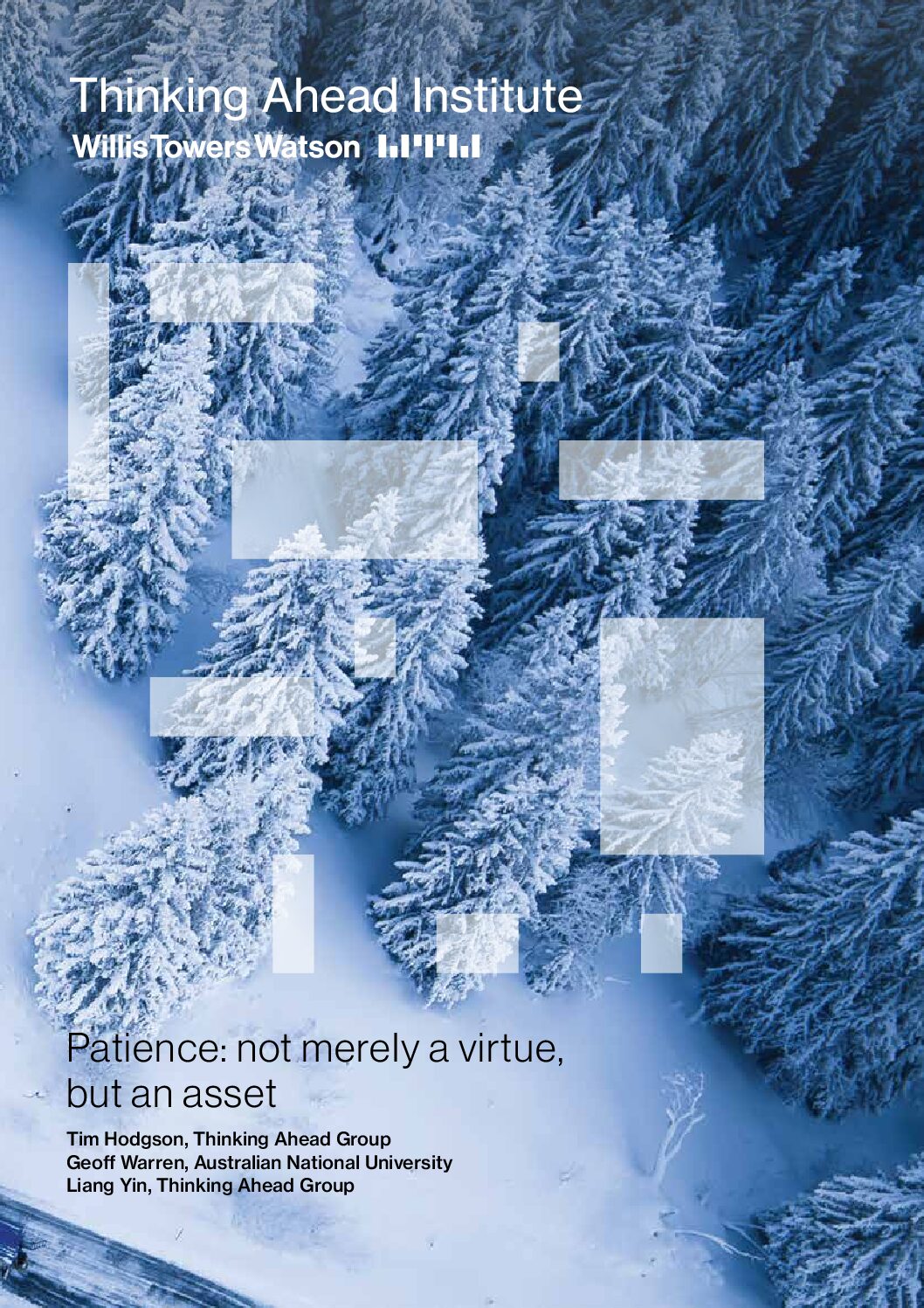This paper considers the link between ‘patience’ and investing successfully for the long term. It is based on two interrelated ideas. First, patience differentiates between long-horizon and short-horizon investors. Second, patience must be seen as a depreciating asset. Left unmanaged, patience will erode and lose its value.
The thesis we explore has two components:
- Patience has value, because it: (a) supports the ability to invest for the long term, and (b) allows the maintenance of (initially) losing positions.
- Patience running out is bad, because it: (a) can trigger a value-destructive sale (capitulation), and (b) sends the wrong signals, which can undermine capacity to exercise patience in future.
We consider an investment that has a high chance of delivering a very handsome return. The only problem is that we don’t know when. The return could materialise tomorrow, or years down the track. What type of investor would pursue such an investment? Clearly, they must have patience. They must not be too concerned with when the payoff might arrive, although they should worry if it will eventually occur. They must be able to stay the course if the payoff is delayed. Being able to pursue such investments opens a class of potentially rewarding opportunities that impatient investors may overlook.

